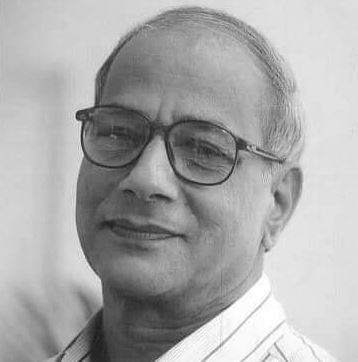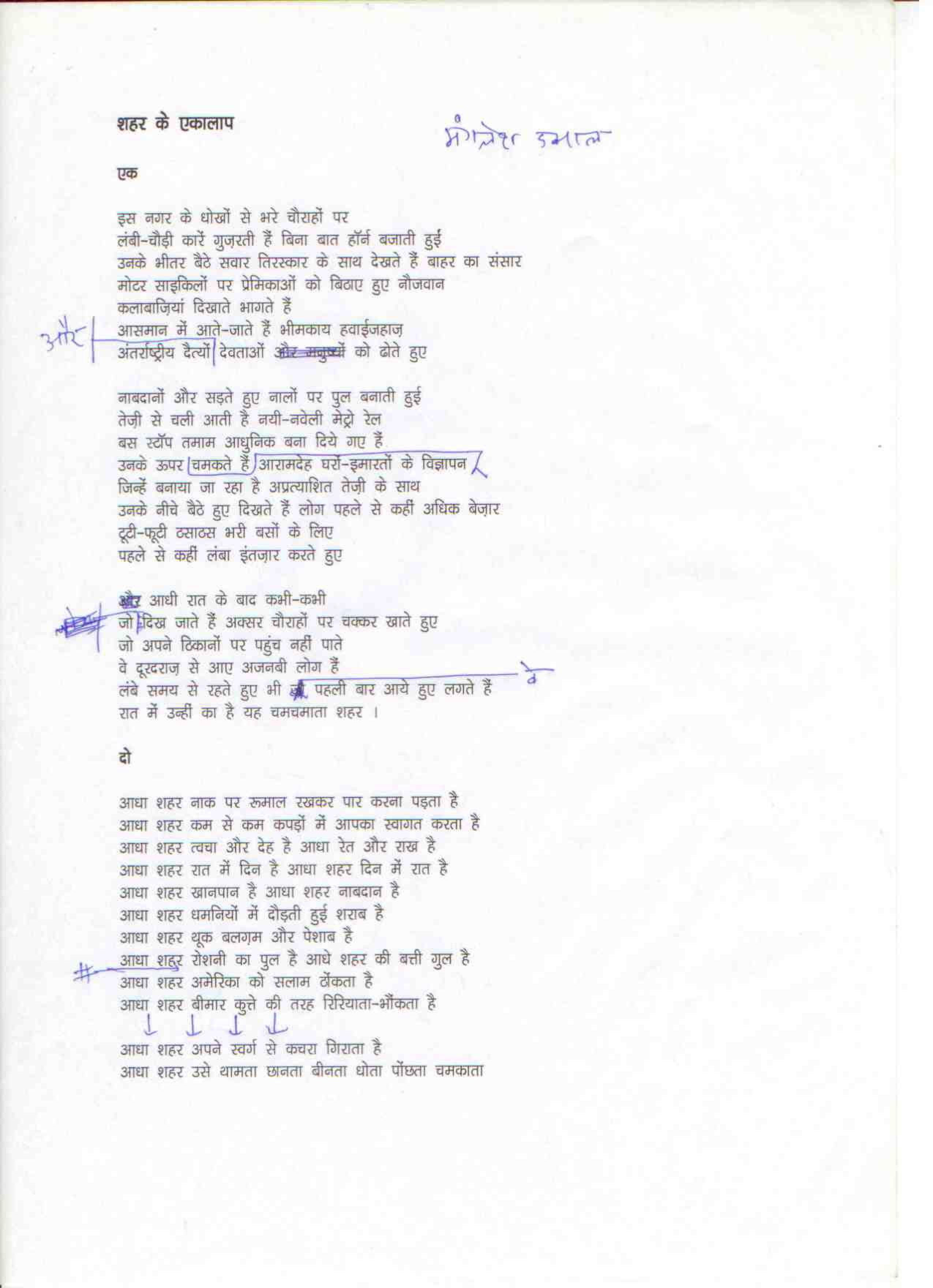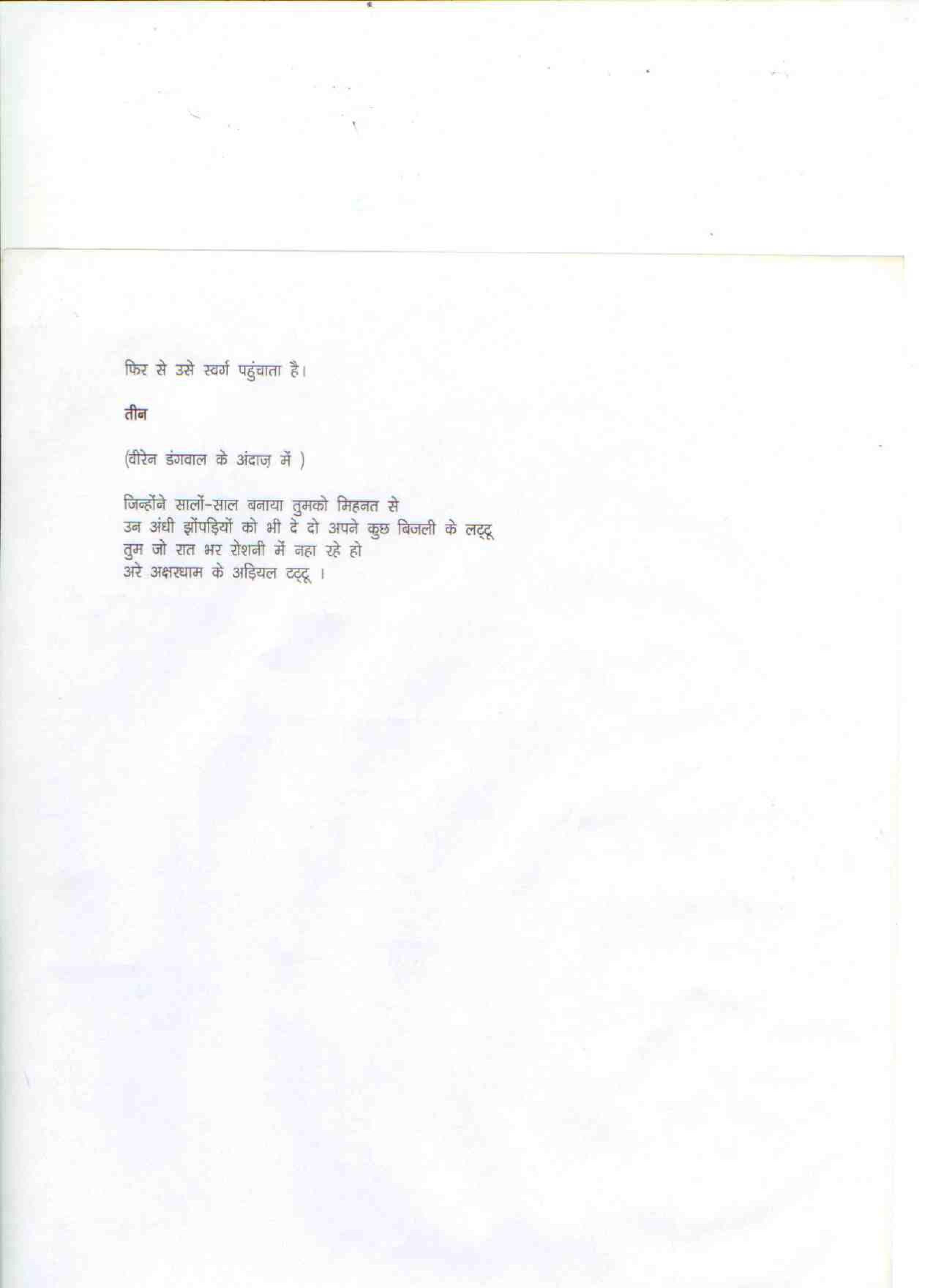In-Betweenness And Migrancy: A Tribute To Manglesh Dabral
The Hindi poet, Manglesh Dabral, died in the country’s capital last week, felled as many others have been by COVID-19. Dabral was a quiet, unassuming man, and, according to those who are truly conversant in Hindi poetry, quite likely among the two or three of the greatest Hindi poets of his generation.

The Hindi poet, Manglesh Dabral, died in the country’s capital last week, felled as many others have been by COVID-19. Dabral was a quiet, unassuming man, and, according to those who are truly conversant in Hindi poetry, quite likely among the two or three of the greatest Hindi poets of his generation. He had a long career as a journalist, having been associated with many leading Hindi newspapers and magazines—in Bhopal, Allahabad, and Delhi—over the course of several decades, and his stewardship of the Sunday literary magazine of the newspaper Jansatta, known as Ravivari, was quite legendary. His obituaries make note of his many distinguished contributions to Indian literature and journalism and all those need not be rehearsed here at length. Though Dabral’s poetry was translated into English and nearly a dozen other European languages, he was himself an accomplished translator into Hindi of the poetry of Pablo Neruda, Bertolt Brecht, and Zbigniew Herbert among others.

The European poets he chose to translate should, to the informed reader, furnish some clues to Dabral’s own political disposition—as does Dabral’s translation into Hindi of Arundhati Roy’s second novel, The Ministry of Utmost Happiness. As a young journalist working during the period of the Emergency (1975-77), Dabral saw first-hand the chilling effect of authoritarian rule on press freedoms and the long-term implications for any country of the suppression of fundamental rights of speech and expression. In an interview that he gave in 2017, he recalled the Emergency as a ‘very dark period’ where a journalist seeking to work with integrity was very likely to find himself behind bars. In 2000, he received the Sahitya Akademi award in Hindi for his collection of poems entitled Ham Jo Dekhte Hain[“What We See”], but he was among the writers who chose to return the reward to the government in 2015 to signal their grave unhappiness at the rising tide of communal violence and intolerance of minorities and, moreover, the failure of the state to condemn such violence. As he explained in an interview published in the Deccan Chronicle, ‘I don’t want India to turn into Pakistan.’ Though there is presently no declared “emergency” in India, Dabral saw before him the shrinking space for democratic dissent and the ravenous appetite of the present government to turn all its critics into foes of the nation. There is more than a tinge of sadness and even despair in his final collection of poems, aptly called Naye Yug Me Shatru [“Enemies in this New Age”]. It is thus not surprising that his death should gone unnoticed in the highest reaches of the government.
Dabral was a man of the hills, born in Tehri, Uttarakhand, in 1948, and as a young man he moved to the city. Though he is celebrated in left circles in a quiet fashion—echoing perhaps Dabral’s own rather quiet demeanor and his sense of the essential ‘loneliness of the poet’—as someone who was staunchly committed to a Marxist brand of politics and as a poet with a searing conscience, much of his oeuvre is informed by the tension between the village and the city. Dabral’s own story mirrors the great theme of the vast migration from the village to the city, from the hinterland to the coasts and to the country’s metropolitan centers, that informs the Indian imaginary and has reshaped the contours of what we call “Bharat”. In a simple but moving poem, “The City”, Dabral narrates the nation—the story of tens of millions of Indianswho have emptied out, as in his native Uttarakhand, thousands of villages:
I looked at the city and smiled and walked in Who would ever want to live here I wondered And never went back.
What is captured in this poem as well is the ambivalence that Dabral continued to experience to the end of his life. There was scarcely anything to return to in the village: the Tehri Garhwal region had experienced large-scale dispossession over the decades and many of the villages that Dabral would have known since his childhood had disappeared, some of them submerged as the Tehri, at 260 meters the tallest dam in India, came into place. Yet Dabral was never entirely at ease in the city either, explaining in the introduction to his bilingual poetry collection, This Number Does Not Exist: “My poetry was born in the mountain, lived among the stones and sang of water, clouds, trees, and birds; but soon it migrated to the cities where the world was not so simple and innocent despite all its attractions, its wide and ever-lit roads, squares and lamp posts, which looked like the signifiers of a new civilization. It was filled with the strains between the loss of native spaces and the difficulties of coming to terms with the place of refuge.” Dabral’s other great love was music, and a short essay that he published in the Indian Express on 12 November 2017 expresses poignantly, even painfully, the loss that he felt upon leaving the village. On family evenings, as his father tapped out music on his harmonium built of German reeds, the young Manglesh felt moved by Raga Durga. “After some years, when I arrived in Delhi,” wrote Dabral, “I suddenly felt that I have been banished from a raga. When I saw the last tree of my village diminishing away and crossed the thin river flowing down the village, the absence of that raga made its home within me.”
A little over a decade ago, I chanced upon a poem of his called ‘Shahar ke Ekalaap’, published in Baya (June 2007). I was sufficiently taken in by the poem: it gestured not so much at the divide between the village and the city, but within the city. The migrant is always in that state of in-betweenness, which is also the space between the self and the other. Yet, the political creature that Dabral was in his own way, he was unequivocal in his political views and the poem ends with a resounding stab at the “perverse hirelings of Akshardham.” This monument at Delhi’s outskirts, more so to Hindu pride than to the supposed piety of the devotees of the Swaminarayan sect, has a sordid and troubled history. I thought of translating the poem into English and including it in an anthology which I was then in the process of putting together and which eventually saw the light of day as a two-volume set, The Oxford Anthology of the Modern Indian City (2013). I entered into a correspondence with Dabral and he was agreeable to having me undertake the translation of a version that he revised slightly in long hand. My translation then appeared in the volume called Making and Unmaking the City: Politics, Culture, and Life Forms. As far as I’m aware, my anthology marks the only appearance of the English translation of Dabral’s poem, which I share with my readers as a tribute to this remarkable man and poet.


The Monologue of the City
One
On the treacherous crossroads of this city Wide limos pass by honking needlessly The passengers inside gaze with contempt at the world outside Young men with lovers riding pillion on their motorcycles race away while performing reckless thrills Jumbo planes crisscross the skies carrying forth international celebrities and gangsters
The sinuous new metro goes speeding on the bridge over rotting sewers and cesspools All the bus stops have very much been modernized with gleaming billboards for lavish condominiums and homes which are being built with unexpected speed Beneath them are seated people more than a trifle bit displeased Awaiting with longer than usual anticipation the arrival of ramshackle, overcrowded buses
Once in a while well past midnight Those who are often seen wandering around the crossroads Unable to reach their destinations They are strangers from far-away places Long denizens of the city they yet look as if it is their first visit This glittering city belongs to them at night
Two
Half the city is traversed with a handkerchief on one’s nose Half the city welcomes you with the barest of clothes Half the city is bark and body, the other half sand and ashes Half the city is day by night, the other half night by day Half the city is decadent abundance, the other half a cesspool Half the city is alcohol running through its veins, The other half spittle, mucus and urine Half the city is an arc of light, the other half darkness Half the city salutes America, The other half whimpers and barks like a diseased dog Half the city discards garbage from its heavenly abodes, The other half collects, sifts, washes, wipes and burnishes it Sending it to on to the heavenly abodes once again
Three (after Viren Dangwal) Those who sculpted you over years with unfailing diligence Give those huts blinded by darkness A sliver of your light You, who are awash in the floodlit night of Akshardham You, the perverse hirelings of Akshardham
(Vinay Lal is a writer, blogger, cultural critic, and Professor of History at UCLA)
[Disclaimer: The opinions, beliefs and views expressed by the various authors and forum participants on this website are personal and do not reflect the opinions, beliefs and views of ABP News Network Pvt Ltd.]


























